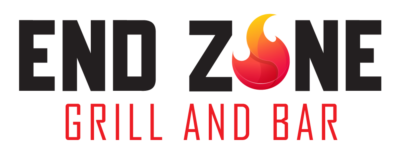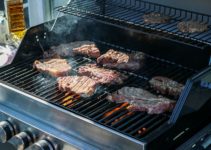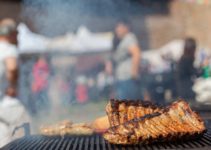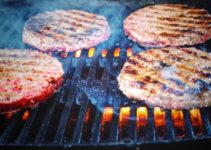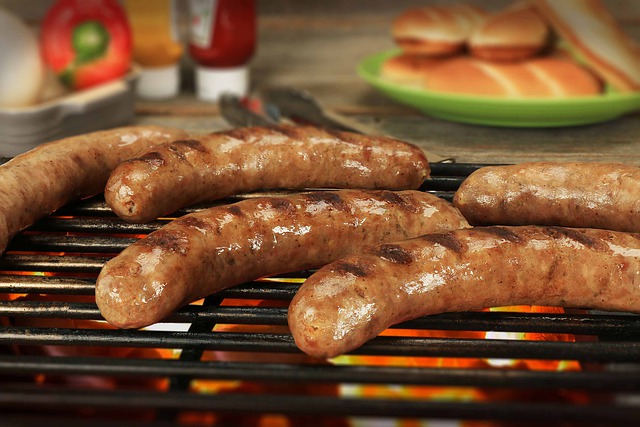
Charcoal Vs Propane Grill: How Do They Compare?
Summertime is the perfect time to fire up the grill and celebrate with family and friends. There are many different types of grills on the market, but which one is right for you? Charcoal grills have been around for years and are a popular option, but propane grills are becoming more popular because they are easier to use and provide even heat distribution. So, which one should you choose? Here’s a look at the pros and cons of charcoal vs propane grills to help you decide.
Are you thinking of switching to a charcoal grill from your propane grill? If so, you’re not alone. A lot of people are making the switch because they believe that charcoal grills produce better-tasting food. But is that really true? In this blog post, we’ll take a look at the pros and cons of both types of grills and help you decide which one is right for you.
Table of Contents
What Is Charcoal Grill?
A charcoal grill is a type of grill that uses charcoal as its primary fuel source. Charcoal grills are popular for their ability to impart a smoky flavor to food, and they can be used for both cooking and smoking. While charcoal grills come in a variety of shapes and sizes, they all share certain common features, such as a fire grate, vents, and a cooking surface.
Charcoal grills get their name from the fact that they use charcoal as their main fuel source. Charcoal is made from wood that has been burned down to just coal. This process removes water and other impurities from the wood, leaving behind only the purest form of carbon. This makes charcoal an extremely hot-burning fuel source, which is ideal for grilling.
There are two primary types of charcoal that can be used in grilling: lump charcoal and briquettes. Lump charcoal is made from pieces of wood that have been burned down to coal. Briquettes are made from charcoal that has been ground up and formed into small balls or blocks. Both lump charcoal and briquettes can be used in a charcoal grill, but each has its own benefits and drawbacks.
Lump charcoal burns hotter and cleaner than briquettes, making it the better choice for grilling. However, it can be more difficult to light and can produce more ash. Briquettes burn slower and produce less ash, but they can be easier to light and maintain a steady temperature.
No matter which type of charcoal you use, it’s important to make sure that your grill has plenty of ventilation. Vents allow air to flow through the grill, keeping the coals burning hot and preventing the fire from smoldering. Most charcoal grills have two vents: one at the bottom and one at the top. The bottom vent should be open when you’re lighting the grill, as this will help to get the coals going. Once the coals are lit, you can close the bottom vent to control the airflow and regulate the heat. The top vent should always be left open, as it allows heat and smoke to escape.
The final key component of a charcoal grill is the cooking surface. This is where the food will actually come into contact with the heat, so it’s important to choose a material that will conduct heat well and be easy to clean. The most common materials used for grill grates are stainless steel and cast iron. Stainless steel is non-reactive, so it won’t rust or react with foods, making it ideal for grilling. Cast iron conducts heat well and is also very durable, but it can be difficult to clean.
If you’re looking for a charcoal grill that’s easy to use and produces great results, then a stainless steel or cast iron model is a good choice. These materials are durable and conduct heat evenly, so your food will cook evenly every time. If you want a little more control over the temperature, then look for a grill with adjustable vents. This way, you can open or close the vents to regulate the amount of heat that’s being produced.
No matter what type of charcoal grill you choose, remember to practice safety when using it. Make sure that the coals are completely extinguished before leaving the area, and never leave children or pets unattended near the grill. With proper care and maintenance, your charcoal grill will last for many years.
What Are The Pros And Cons Of Charcoal Grill?
When it comes to grilling, there are a lot of different methods and techniques that you can use. One type of grill that is becoming increasingly popular is the charcoal grill. Charcoal grills have a lot of benefits, but they also have some drawbacks. Here are some of the pros and cons of charcoal grilling:
The Pros:
– Charcoal grills provide a more intense flavor.
– Charcoal grills can reach higher temperatures than gas grills, which means that you can sear meat and create unique flavor profiles.
– Charcoal grills are more portable than gas grills, making them ideal for camping or picnics.
– You can find charcoal grills in a variety of sizes, so you can choose one that is perfect for your needs.
The Cons:
– Charcoal grills can be messy and difficult to clean.
– You need to add charcoal and lighter fluid to the grill before you use it, which can be time-consuming.
– It can be tricky to control the temperature on a charcoal grill, which means that you need to be careful not to overcook or undercook your food.
– If you don’t have access to a power outlet, you won’t be able to use a charcoal grill.
Overall, charcoal grills have a lot of advantages and disadvantages. You’ll need to decide if the benefits outweigh the drawbacks before you decide if a charcoal grill is right for you.
What Is Propane Grill?
A propane grill is a type of grill that uses propane gas as its main fuel source. Propane grills are very popular, especially among campers and those who enjoy outdoor cooking. They are also becoming increasingly popular for use in the home, as they offer a number of advantages over other types of grills.
Propane grills typically have two or three burners, which allows you to cook multiple items at once. This can be a great advantage if you’re hosting a large gathering or if you simply want to cook more food at once. Additionally, propane grills usually have shelves or racks beneath the main cooking surface, which provides additional space for holding food while it cooks.
Another advantage of propane grills is that they tend to be very easy to clean. Since the fuel source is completely sealed off from the rest of the grill, there is no need to worry about grease or other debris getting into the grill. Additionally, most propane grills come with a catch pan that collects any drippings, making cleanup even easier.
There are a few things to keep in mind when using a propane grill, however. First, always make sure that the tank is full before starting the grill. If the tank runs dry during cooking, it could cause an explosion. Second, never leave a lit grill unattended. Finally, always follow the manufacturer’s instructions for proper usage and maintenance. By following these simple tips, you can enjoy many years of safe, delicious grilling.
What Are The Pros And Cons Of Propane Grill?
The debate between gas and charcoal grilling is long-standing. But what about propane? Below, we’ll explore the pros and cons of propane grilling to help you make an informed decision about which type of grill is right for you.
The Pros:
– Propane grills are easy to use.
Simply turn on the gas, push a button, and you’re ready to start cooking. No need to wait for the coals to heat up or futz with lighter fluid.
– Propane grills provide consistent heat.
Unlike charcoal grills, which can be difficult to control, propane grills offer consistent heat, making it easy to cook your food the way you want it.
– Propane grills are less messy than charcoal grills.
There’s no need to deal with ashes or used coals when you’re done cooking. Just turn off the gas and give your grill a quick wipe down.
– Propane grills are more portable than charcoal grills.
If you enjoy tailgating, camping, or picnicking, a propane grill is a great option because it’s easy to transport. Just disconnect the gas tank and go!
The Cons:
– Propane grills can be more expensive than charcoal grills.
If you’re on a budget, a charcoal grill may be the better option. However, keep in mind that you’ll also need to purchase charcoal and lighter fluid, which can add to the cost.
– Propane grills don’t offer the same smoky flavor as charcoal grills.
For many people, the appeal of grilled food is the smoky flavor imparted by the charcoal. If this is important to you, a propane grill may not be the best option.
– Propane grills require additional safety precautions.
Because propane is a flammable gas, it’s important to take some basic safety precautions when using a propane grill. Be sure to read the instructions that come with your grill carefully and never leave your grill unattended while it’s on.
Now that you know the pros and cons of propane grilling, you can decide if this type of grill is right for you. If you’re looking for an easy-to-use option that provides consistent heat, a propane grill may be the way to go. However, if you’re looking for that classic smoky flavor, you may want to stick with charcoal.
Charcoal Vs Propane Grill Comparison
When it comes to grilling, there are two main types of fuel that people use: charcoal and propane. Each has its own advantages and disadvantages, so it’s important to know what you’re getting into before you start cooking. Here’s a quick comparison of charcoal vs propane grills to help you make the best decision for your needs.
– Taste: When it comes to taste, charcoal is often considered the better option. This is because it imparts a smoky flavor to food that many people enjoy. Propane, on the other hand, doesn’t add any flavor to food since it’s burned cleanly.
– Cooking Time: Charcoal can take longer to heat up than propane, so if you’re in a hurry, propane may be the better option. However, once charcoal is lit, it can stay hot for a long time, so you can cook multiple batches of food without having to stop and restart the grill.
– Control: Propane grills usually have more control options than charcoal grills. This means that you can more easily adjust the temperature to suit your needs. Charcoal grills often require more trial and error to get the perfect heat.
– Controlling Temperature: It can be difficult to control the temperature of a charcoal grill, particularly if you’re new to grilling. This is because charcoal briquettes can vary in size and density, which affects how much heat they produce. If you’re not careful, it’s easy to end up with food that’s either undercooked or burnt. Propane grills are much easier to control since the temperature is regulated by the gas flow.
– Clean Up: Both charcoal and propane grills require some clean up after use. However, charcoal can be more difficult to clean since you need to remove the ashes from the grill. Propane grills usually have a drip pan that catches any grease and drippings, which makes them simpler to clean.
– Accessories: There are many accessories available for both charcoal and propane grills. However, charcoal grills often require special accessories, such as a chimney starter, in order to get started. Propane grills typically come with everything you need to start grilling.
– Safety: When used properly, both charcoal and propane grills are safe. However, charcoal grills can be more dangerous since they use an open flame. Propane grills have a self-contained fuel source, so there’s less risk of fire.
– Cost: The cost of charcoal and propane varies depending on where you live and the type of grill you purchase. In general, charcoal is cheaper than propane. However, propane grills typically last longer since they’re made with higher-quality materials.
When it comes to choosing between a charcoal vs propane grill, it’s important to consider your needs and preferences. If you’re looking for great taste, then charcoal is the way to go. However, if you need a quicker cooking time and more control, then propane is the better option. No matter what you choose, with a little practice, you’ll be grilling like a pro in no time!
FAQs About Charcoal Vs Propane Grill
How Do You Start A Charcoal Grill?
There’s no denying that grilling with charcoal imparts a unique flavor to food. But if you’ve never fired up a charcoal grill, the process can seem a bit daunting. Here’s a step-by-step guide to help you get started.
– Choose the right type of charcoal. There are two main types of charcoal: briquettes and lump. Briquettes are made from compressed sawdust and other wood products, while lump is made from whole chunks of wood that have been charred. Many grillers prefer lump because it lights more easily and burns hotter, but it can be more difficult to find.
– Prep your grill. Start by removing the grate and giving the inside of the grill a good cleaning. Then, open the bottom vents completely and place the charcoal in the center of the grill.
– Light the charcoal. You can use a chimney starter or an electric starter to get your coals going. If you’re using a chimney starter, fill it with charcoal and place it on the grate. Then, crumple up some newspaper and stuff it under the bottom of the chimney. Light the paper and wait 10-15 minutes for the charcoal to catch fire.
If you’re using an electric starter, insert it into the center of the pile of charcoal and plug it in. Wait 5-10 minutes for the charcoal to catch fire.
– Adjust the vents. Once the charcoal is lit, you’ll need to adjust the vents to control the temperature. For a hot fire, open the vents halfway. For a moderate fire, open them all the way. For a low fire, close the vents partially.
– Preheat the grill. Once the charcoal is lit and the vents are adjusted, put the grate back in place and preheat the grill for 10-15 minutes. The coals will be ready when they’re covered in gray ash.
– Start grilling! Place your food on the grill and cook it to your liking. Remember to keep an eye on the temperature and adjust the vents as needed.
And that’s all there is to it! With a little practice, you’ll be a charcoal grilling pro in no time.
What Are Some Tips To Use A Propane Grill?
If you’re new to grilling with propane, there are a few things you should keep in mind to ensure a safe and delicious cookout
– Start by preheating your grill for about 10-15 minutes before you begin cooking. This will help to ensure that your food cooks evenly.
– Make sure that the grill is clean before you start cooking. A clean grill will help to prevent your food from sticking and make it easier to cook evenly.
– When you are ready to start cooking, brush the grates of the grill with oil to prevent sticking.
– Cook your food on medium-high heat so that it browns and cooks through without burning. Use a lid if necessary to help control the temperature.
– When you are finished cooking, be sure to turn off the gas supply to the grill and allow it to cool completely before cleaning.
With these tips in mind, you’re well on your way to grilling like a pro. So fire up the grill and enjoy a delicious meal with family and friends!
How Do I Clean My Charcoal Grill?
If you’re a fan of grilling, chances are you have a charcoal grill. Charcoal grills are great for that smoky flavor that you just can’t get with a gas grill, but they can be a little more difficult to clean. If you don’t clean your grill regularly, it can become clogged with grease and debris, making it harder to use and increasing the risk of fire. So how do you clean a charcoal grill?
The first step is to remove the ashes from the bottom of the grill. You can do this by scooping them into a metal ashtray or bucket. Once the ashes are removed, take a wire brush and scrub the inside of the grill to remove any remaining residue.
Next, you’ll need to clean the grill grates. The best way to do this is to soak them in a solution of warm water and dish soap for about 15 minutes. After they’ve soaked, use a brush to scrub away any stubborn dirt or grease. Rinse the grates with hot water and dry them off before using them again.
If your grill is particularly dirty, you may need to give it a deep cleaning. To do this, mix together a solution of one part vinegar and one part water. Spray this solution onto the inside of the grill and let it sit for 30 minutes. Then, use a wire brush to scrub away any remaining dirt and grease. Rinse the grill with hot water and dry it off before using it again.
By following these simple steps, you can keep your charcoal grill clean and ready to use all summer long!
What Are The Most Common Mistakes People Make When Using A Propane Grill?
– Not letting the grill heat up long enough: This is one of the most common mistakes people make when grilling with propane. It’s important to let your grill heat up for at least 15 minutes before cooking on it. Otherwise, your food will not cook evenly and could stick to the grates.
– Not cleaning the grill regularly: Another mistake people make is not cleaning their grill regularly. Propane grills need to be cleaned after each use to prevent build-up and ensure optimal performance. Use a wire brush to scrub the grates clean and then rinse with warm water.
– Not using enough propane: If you don’t use enough propane, your grill will not get hot enough to properly cook food. Make sure the tank is full and that you are using the proper amount of fuel for your grill.
– Not preheating the grill: This is another mistake people make when grilling with propane. It’s important to preheat your grill before cooking on it. This will help ensure that your food cooks evenly and doesn’t stick to the grates.
– Overcooking food: Another common mistake people make when grilling with propane is overcooking their food. Propane grills can get very hot, so it’s important to watch your food carefully and not overcook it.
– Not using a thermometer: One of the best ways to avoid overcooking food on a propane grill is to use a thermometer. This will help you gauge the internal temperature of your food and make sure it’s cooked properly.
– Not letting the grill cool down before cleaning: It’s important to let your grill cool down before cleaning it. If you try to clean it while it’s still hot, you could damage the grates or cause a fire.
– Not using the right cleaner: When cleaning your propane grill, it’s important to use the right cleaner. There are special cleaners made for grills that will remove build-up without damaging the finish.
– Not storing the propane tank properly: When not in use, it’s important to store your propane tank in a cool, dry place. If you store it in a hot or humid environment, the tank could rust or corrode.
– Not following the manufacturer’s instructions: It’s important to read and follow the manufacturer’s instructions when using a propane grill. Failure to do so could result in injury or damage to your grill.
How Do I Light A Charcoal Grill?
To light a charcoal grill, you’ll need to use either lighter fluid or charcoal starter. Lighter fluid is easy to use but can give your food a chemical taste. Charcoal starter is more expensive but worth the investment if you plan on grilling often.
To use lighter fluid, simply soak your charcoal in it for about 20 minutes. Then, open up all the vents on your grill and place the charcoal inside. Use a long match or lighter to ignite the fluid and let the charcoal burn until it’s covered in gray ash. This usually takes about 20 minutes.
If using a charcoal starter, place it under the grate of your grill and light it according to the instructions. Once it’s lit, add your charcoal on top and wait for it to turn gray before starting to cook.
How Do I Choose The Right Propane Grill For Me?
There are many different types of propane grills on the market, so how do you choose the right one for you? Here are a few things to consider:
– Size: How much cooking space do you need? A small grill is perfect for a couple, while a large grill can accommodate a whole family.
– Features: What kind of features do you want in your grill? Some grills come with side burners or rotisseries, while others have simple controls.
– Price: Propane grills range in price from around $100 to $1,000 or more. Decide how much you’re willing to spend before you start shopping.
Once you’ve considered these factors, you can begin to narrow down your choices and find the perfect propane grill for your needs.
How Do I Set Up My Propane Grill?
Setting up your propane grill is easy. First, make sure you have a stable, level surface on which to set up the grill. Then, connect the propane tank to the regulator valve on the back of the grill. Once the connection is secure, open the valve on the propane tank and turn on the gas at the control knobs on the front of the grill. Preheat the grill for 10-15 minutes before cooking.
>>> See more: How To Light a Propane Gas Grill(Charcoal vs Propane)
Conclusion
So, which grill is right for you? Charcoal vs propane? If you’re looking for a cheaper option that offers more flavor, charcoal is the way to go. However, if you want an easy-to-use grill with less of a learning curve, propane might be the better choice. Whichever route you decide to take, we hope this article has armed you with enough information to make an informed decision about what type of grill will best fit your needs and lifestyle. Thanks for reading!
Read more:
